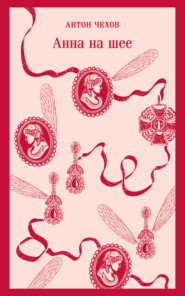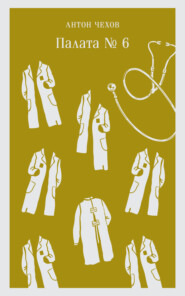По всем вопросам обращайтесь на: info@litportal.ru
(©) 2003-2024.
✖
The Duel and Other Stories
Настройки чтения
Размер шрифта
Высота строк
Поля
A CARRIAGE with four fine sleek horses drove in at the big so-called Red Gate of the N – Monastery. While it was still at a distance, the priests and monks who were standing in a group round the part of the hostel allotted to the gentry, recognised by the coachman and horses that the lady in the carriage was Princess Vera Gavrilovna, whom they knew very well.
An old man in livery jumped off the box and helped the princess to get out of the carriage. She raised her dark veil and moved in a leisurely way up to the priests to receive their blessing; then she nodded pleasantly to the rest of the monks and went into the hostel.
"Well, have you missed your princess?" she said to the monk who brought in her things. "It's a whole month since I've been to see you. But here I am; behold your princess. And where is the Father Superior? My goodness, I am burning with impatience! Wonderful, wonderful old man! You must be proud of having such a Superior."
When the Father Superior came in, the princess uttered a shriek of delight, crossed her arms over her bosom, and went up to receive his blessing.
"No, no, let me kiss your hand," she said, snatching it and eagerly kissing it three times. "How glad I am to see you at last, holy Father! I'm sure you've forgotten your princess, but my thoughts have been in your dear monastery every moment. How delightful it is here! This living for God far from the busy, giddy world has a special charm of its own, holy Father, which I feel with my whole soul although I cannot express it!"
The princess's cheeks glowed and tears came into her eyes. She talked incessantly, fervently, while the Father Superior, a grave, plain, shy old man of seventy, remained mute or uttered abruptly, like a soldier on duty, phrases such as:
"Certainly, Your Excellency… Quite so. I understand."
"Has Your Excellency come for a long stay?" he inquired.
"I shall stay the night here, and to-morrow I'm going on to Klavdia
Nikolaevna's – it's a long time since I've seen her – and the day after to-morrow I'll come back to you and stay three or four days.
I want to rest my soul here among you, holy Father.."
The princess liked being at the monastery at N – . For the last two years it had been a favourite resort of hers; she used to go there almost every month in the summer and stay two or three days, even sometimes a week. The shy novices, the stillness, the low ceilings, the smell of cypress, the modest fare, the cheap curtains on the windows – all this touched her, softened her, and disposed her to contemplation and good thoughts. It was enough for her to be half an hour in the hostel for her to feel that she, too, was timid and modest, and that she, too, smelt of cypress-wood. The past retreated into the background, lost its significance, and the princess began to imagine that in spite of her twenty-nine years she was very much like the old Father Superior, and that, like him, she was created not for wealth, not for earthly grandeur and love, but for a peaceful life secluded from the world, a life in twilight like the hostel.
It happens that a ray of light gleams in the dark cell of the anchorite absorbed in prayer, or a bird alights on the window and sings its song; the stern anchorite will smile in spite of himself, and a gentle, sinless joy will pierce through the load of grief over his sins, like water flowing from under a stone. The princess fancied she brought from the outside world just such comfort as the ray of light or the bird. Her gay, friendly smile, her gentle eyes, her voice, her jests, her whole personality in fact, her little graceful figure always dressed in simple black, must arouse in simple, austere people a feeling of tenderness and joy. Every one, looking at her, must think: "God has sent us an angel.." And feeling that no one could help thinking this, she smiled still more cordially, and tried to look like a bird.
After drinking tea and resting, she went for a walk. The sun was already setting. From the monastery garden came a moist fragrance of freshly watered mignonette, and from the church floated the soft singing of men's voices, which seemed very pleasant and mournful in the distance. It was the evening service. In the dark windows where the little lamps glowed gently, in the shadows, in the figure of the old monk sitting at the church door with a collecting-box, there was such unruffled peace that the princess felt moved to tears.
Outside the gate, in the walk between the wall and the birch-trees where there were benches, it was quite evening. The air grew rapidly darker and darker. The princess went along the walk, sat on a seat, and sank into thought.
She thought how good it would be to settle down for her whole life in this monastery where life was as still and unruffled as a summer evening; how good it would be to forget the ungrateful, dissipated prince; to forget her immense estates, the creditors who worried her every day, her misfortunes, her maid Dasha, who had looked at her impertinently that morning. It would be nice to sit here on the bench all her life and watch through the trunks of the birch-trees the evening mist gathering in wreaths in the valley below; the rooks flying home in a black cloud like a veil far, far away above the forest; two novices, one astride a piebald horse, another on foot driving out the horses for the night and rejoicing in their freedom, playing pranks like little children; their youthful voices rang out musically in the still air, and she could distinguish every word. It is nice to sit and listen to the silence: at one moment the wind blows and stirs the tops of the birch-trees, then a frog rustles in last year's leaves, then the clock on the belfry strikes the quarter… One might sit without moving, listen and think, and think..
An old woman passed by with a wallet on her back. The princess thought that it would be nice to stop the old woman and to say something friendly and cordial to her, to help her… But the old woman turned the corner without once looking round.
Not long afterwards a tall man with a grey beard and a straw hat came along the walk. When he came up to the princess, he took off his hat and bowed. From the bald patch on his head and his sharp, hooked nose the princess recognised him as the doctor, Mihail Ivanovitch, who had been in her service at Dubovki. She remembered that some one had told her that his wife had died the year before, and she wanted to sympathise with him, to console him.
"Doctor, I expect you don't recognise me?" she said with an affable smile.
"Yes, Princess, I recognised you," said the doctor, taking off his hat again.
"Oh, thank you; I was afraid that you, too, had forgotten your princess. People only remember their enemies, but they forget their friends. Have you, too, come to pray?"
"I am the doctor here, and I have to spend the night at the monastery every Saturday."
"Well, how are you?" said the princess, sighing. "I hear that you have lost your wife. What a calamity!"
"Yes, Princess, for me it is a great calamity."
"There's nothing for it! We must bear our troubles with resignation.
Not one hair of a man's head is lost without the Divine Will."
"Yes, Princess."
To the princess's friendly, gentle smile and her sighs the doctor responded coldly and dryly: "Yes, Princess." And the expression of his face was cold and dry.
"What else can I say to him?" she wondered.
"How long it is since we met!" she said. "Five years! How much water has flowed under the bridge, how many changes in that time; it quite frightens one to think of it! You know, I am married… I am not a countess now, but a princess. And by now I am separated from my husband too."
"Yes, I heard so."
"God has sent me many trials. No doubt you have heard, too, that I am almost ruined. My Dubovki, Sofyino, and Kiryakovo have all been sold for my unhappy husband's debts. And I have only Baranovo and Mihaltsevo left. It's terrible to look back: how many changes and misfortunes of all kinds, how many mistakes!"
"Yes, Princess, many mistakes."
The princess was a little disconcerted. She knew her mistakes; they were all of such a private character that no one but she could think or speak of them. She could not resist asking:
"What mistakes are you thinking about?"
"You referred to them, so you know them." answered the doctor, and he smiled. "Why talk about them!"
"No; tell me, doctor. I shall be very grateful to you. And please don't stand on ceremony with me. I love to hear the truth."
"I am not your judge, Princess."
"Not my judge! What a tone you take! You must know something about me. Tell me!"
"If you really wish it, very well. Only I regret to say I'm not clever at talking, and people can't always understand me."
The doctor thought a moment and began:
"A lot of mistakes; but the most important of them, in my opinion, was the general spirit that prevailed on all your estates. You see, I don't know how to express myself. I mean chiefly the lack of love, the aversion for people that was felt in absolutely everything. Your whole system of life was built upon that aversion. Aversion for the human voice, for faces, for heads, steps.. in fact, for everything that makes up a human being. At all the doors and on the stairs there stand sleek, rude, and lazy grooms in livery to prevent badly dressed persons from entering the house; in the hall there are chairs with high backs so that the footmen waiting there, during balls and receptions, may not soil the walls with their heads; in every room there are thick carpets that no human step may be heard; every one who comes in is infallibly warned to speak as softly and as little as possible, and to say nothing that might have a disagreeable effect on the nerves or the imagination. And in your room you don't shake hands with any one or ask him to sit down – just as you didn't shake hands with me or ask me to sit down.."
"By all means, if you like," said the princess, smiling and holding out her hand. "Really, to be cross about such trifles.."
"But I am not cross," laughed the doctor, but at once he flushed, took off his hat, and waving it about, began hotly: "To be candid, I've long wanted an opportunity to tell you all I think… That is, I want to tell you that you look upon the mass of mankind from the Napoleonic standpoint as food for the cannon. But Napoleon had at least some idea; you have nothing except aversion."
"I have an aversion for people?" smiled the princess, shrugging her shoulders in astonishment. "I have!"
"Yes, you! You want facts? By all means. In Mihaltsevo three former cooks of yours, who have gone blind in your kitchens from the heat of the stove, are living upon charity. All the health and strength and good looks that is found on your hundreds of thousands of acres is taken by you and your parasites for your grooms, your footmen, and your coachmen. All these two-legged cattle are trained to be flunkeys, overeat themselves, grow coarse, lose the 'image and likeness,' in fact… Young doctors, agricultural experts, teachers, intellectual workers generally – think of it! – are torn away from their honest work and forced for a crust of bread to take part in all sorts of mummeries which make every decent man feel ashamed! Some young men cannot be in your service for three years without becoming hypocrites, toadies, sneaks… Is that a good thing? Your Polish superintendents, those abject spies, all those Kazimers and Kaetans, go hunting about on your hundreds of thousands of acres from morning to night, and to please you try to get three skins off one ox. Excuse me, I speak disconnectedly, but that doesn't matter. You don't look upon the simple people as human beings. And even the princes, counts, and bishops who used to come and see you, you looked upon simply as decorative figures, not as living beings. But the worst of all, the thing that most revolts me, is having a fortune of over a million and doing nothing for other people, nothing!"
The princess sat amazed, aghast, offended, not knowing what to say or how to behave. She had never before been spoken to in such a tone. The doctor's unpleasant, angry voice and his clumsy, faltering phrases made a harsh clattering noise in her ears and her head. Then she began to feel as though the gesticulating doctor was hitting her on the head with his hat.
"It's not true!" she articulated softly, in an imploring voice. "I've done a great deal of good for other people; you know it yourself!"
"Nonsense!" cried the doctor. "Can you possibly go on thinking of your philanthropic work as something genuine and useful, and not a mere mummery? It was a farce from beginning to end; it was playing at loving your neighbour, the most open farce which even children and stupid peasant women saw through! Take for instance your – what was it called? – house for homeless old women without relations, of which you made me something like a head doctor, and of which you were the patroness. Mercy on us! What a charming institution it was! A house was built with parquet floors and a weathercock on the roof; a dozen old women were collected from the villages and made to sleep under blankets and sheets of Dutch linen, and given toffee to eat."
The doctor gave a malignant chuckle into his hat, and went on speaking rapidly and stammering:

















